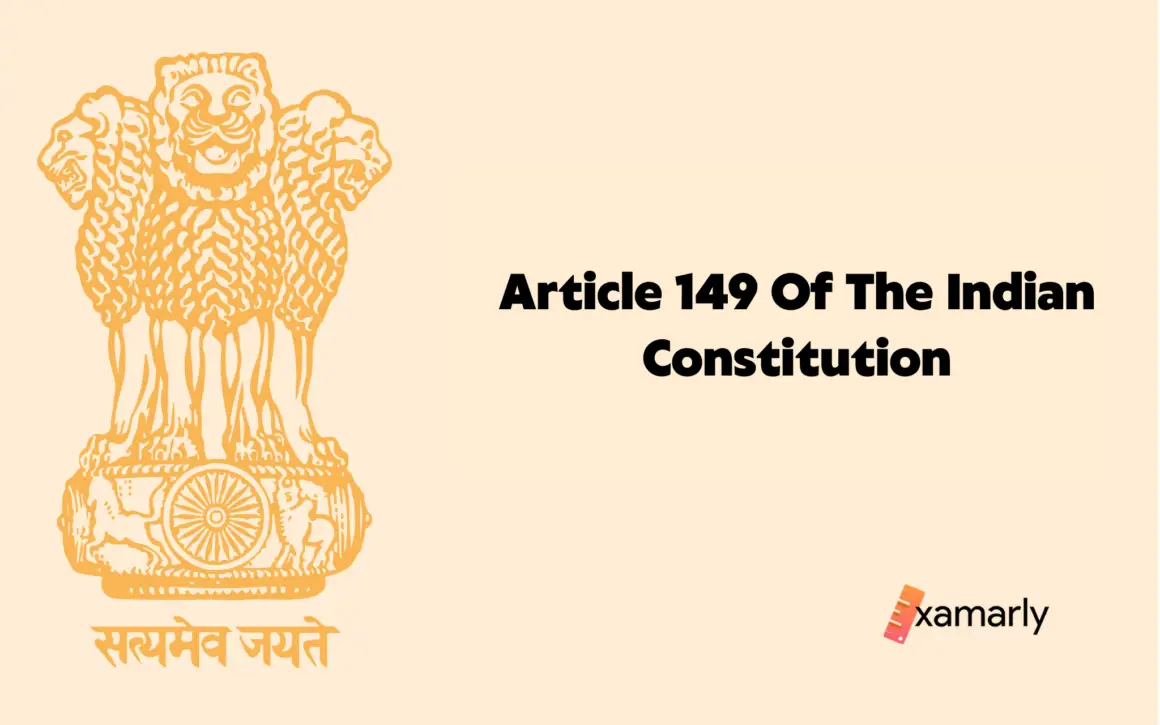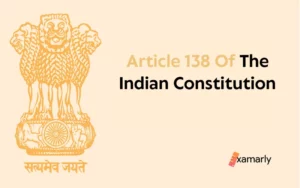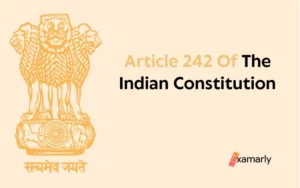Article 149 of the Indian Constitution talks about the roles and responsibilities of the Comptroller and Auditor General Of India.
We will understand everything about Article 149 of the Indian Constitution in detail by analyzing each and every clause present in it.
What Does Article 149 Of The Indian Constitution Say?
149. Duties and powers of the Comptroller and Auditor General The Comptroller and Auditor General shall perform such duties and exercise such powers in relation to the accounts of the Union and of the States and of any other authority or body as may be prescribed by or under any law made by Parliament and, until provision in that behalf is so made, shall perform such duties and exercise such powers in relation to the accounts of the Union and of the States as were conferred on or exercisable by the Auditor General of India immediately before the commencement of this Constitution in relation to the accounts of the Dominion of India and of the Provinces respectively
Article 149 of the Indian Constitution says that the Comptroller and Auditor General have to perform such duties and have powers related to the financial accounts of the Union government and the state governments.
It also says that until provision is made on that behalf by Parliament, the Comptroller and Auditor General shall perform the same duties and exercise the same powers with respect to the accounts of the Union and of the States, and any other authority or body as were conferred on or exercisable by the Auditor General of India immediately before his or her retirement.
Related – Article 190 Of The Indian Constitution
Summing Up
We can conclude from this article that the Comptroller and Auditor General of India is appointed to audit the accounts of the Union and of the States. He or she may also hold such other powers as may be prescribed by or under any law made by Parliament unless provision is made for him or her otherwise.
FAQs
What powers does the CAG have to perform his role?
The Act grants him the following powers to enable him to perform his extensive auditing duties without hindrance:
right to enter any facility he is auditing to conduct an inspection.
the authority to investigate all financial dealings and interrogate the executive.
A right to see any and all books, records, and documents belonging to any organisation being audited.
Capability to determine audit scope and methodology.
What are the duties of the CAG?
Parliament passed the Duties, Powers, and Conditions of the Comptroller and Auditor General Act in 1971 to give effect to Article 149 of the Constitution, which places practically all government expenditures, tax collection, and aid/grant receiving units within the CAG’s audit domain. His responsibilities include conducting audits and providing reports on:
The combined federal and state budgets (known as the Consolidated Fund) cover the full range of government expenditure and revenue collection.
All financial dealings at both the national and state levels with money set aside for unexpected costs (known as Contingency Funds) and other public funds (known as Public Accounts), such as postal savings and Vikas Patras.
Financial records from all government agencies, including trade, manufacturing, profit and loss, balance sheets, and all other subsidiary accounts.
inventory records from every government agency.
The financial statements of every government-owned firm, including ONGC, SAIL, and the like.
Financial records of all municipalities, state universities, and health care providers that operate independently but receive funding from the central government.
Financial records of any organization or agency at his request or on his own initiative as President or Governor.
The Act also lets the subsidiary accounts of the state governments be put together into a consolidated financial report.






